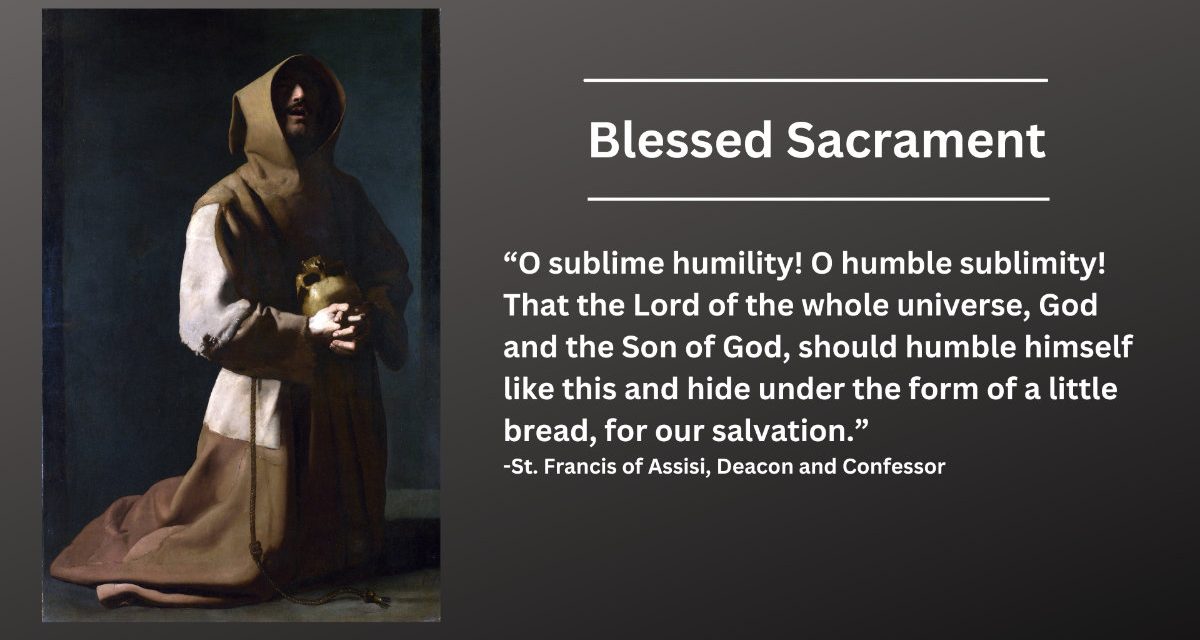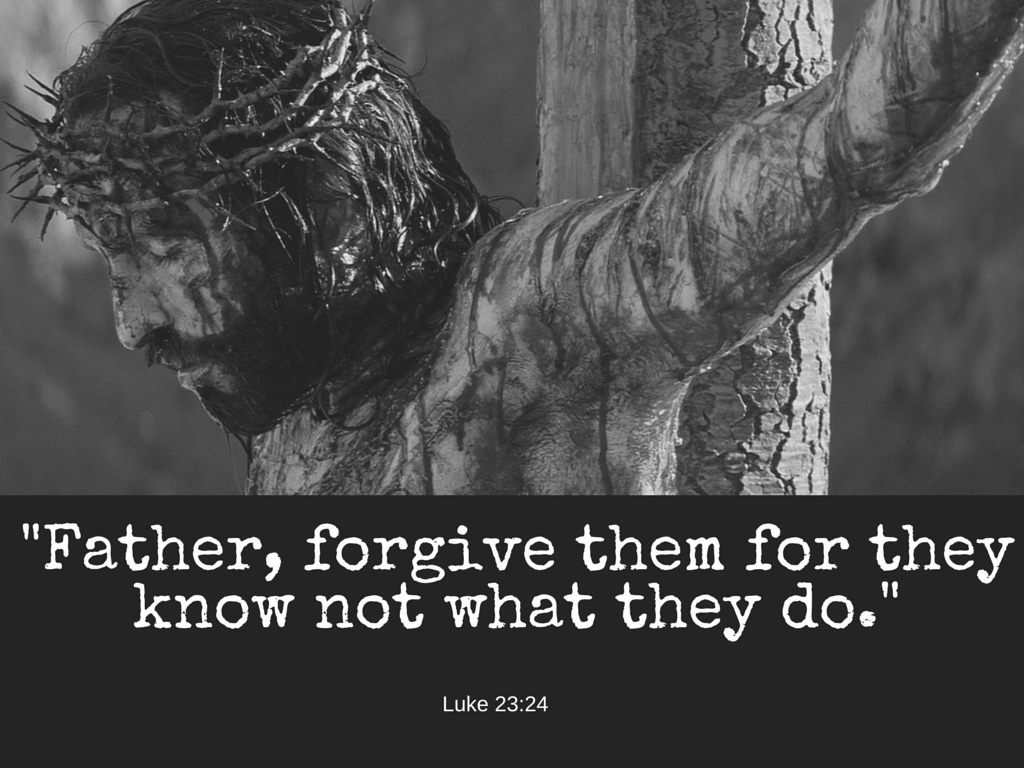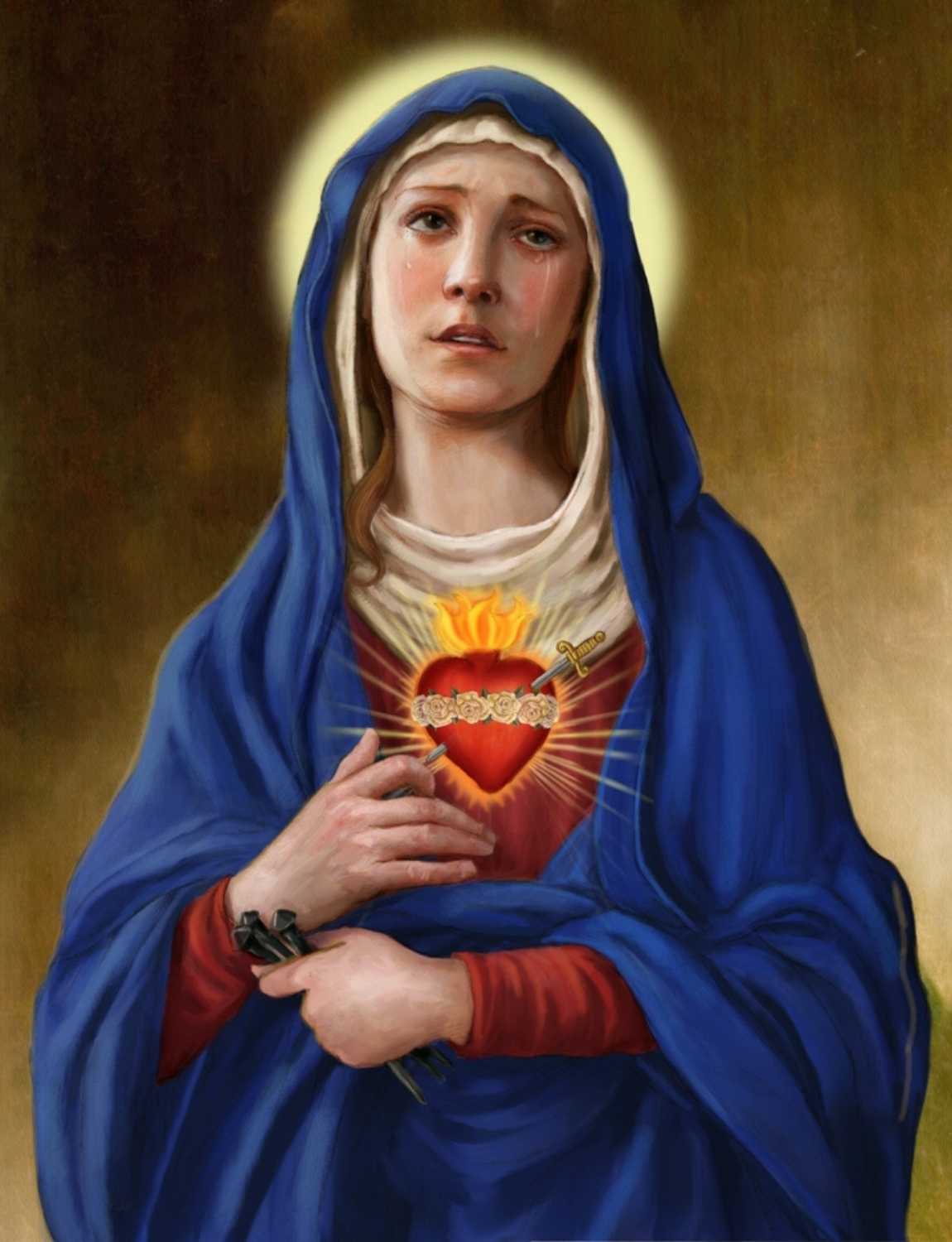
In the Gospel today, the Pharisees were happy to hear that Jesus had just silenced the Sadducees, because the Pharisees and Saduccees did not see eye to eye on many things, and even had different theologies. The Saduccees didn’t believe in angels and also didn’t believe in the resurrection, but the Pharisees did.
One the scholars of the law, a Pharisee, tried to test Jesus, asking Him, “Which commandment of the law is the greatest?” Jesus responded, “You shall love the Lord, your God, with all your heart, with all your soul, and with all your mind. This is the greatest and the first commandment. The second is like it: You shall love your neighbor as yourself. The whole law and the prophets depend on these two commandments.”
I am so excited to get back from Medjugorje and to tell you about my trip. Over the next few weeks, I hope to give you some gems that came from Medjugorje. Whenever I mention Medjugorje in a homily, I always need to preface it with the Church’s teaching on the alleged apparitions. The Church has investigated it with a commission. The commission found the first week of the apparitions were worthy of belief, as all voted but 1 in favor of it. The commission was evenly divided on whether the apparitions after the first week were authentic. But, the pope has the final say on the commissions results and as of today, he hasn’t made a declaration. Therefore, we may continue to believe, if we so choose. It’s private revelation, so no one has to believe it, even if it were given positive affirmation.
Pilgrims who went on the trip, paid about $2500. But, I only paid $250, to be the chaplain of the group.
In the Gospel today, Jesus said, we are to love our neighbor as our self. So to put in a little different way, we can ask, do we really love our self as we ought? If we fail to love our self, then we will not love our neighbor as we ought either.
Some pamper themselves, while others fail to take care of themselves. I had six sisters and with my mother, there were 7 women in the house with three of us men, my brother, my father, and I. In the morning the girls put on their makeup that included eye shadow, mascara, rouge, eyeliner, lipstick, finger nail polish, ear rings, necklaces, they used blow dryers and curling irons. Today some girls also use false eyelashes. Us men, we had cologne, under arm deodorant, we shaved and combed our hair, which all took less than 5 min. The girls took about an hour to get ready for school.
By taking care of our appearance, it shows we love ourself. But if we go overboard with our appearance, maybe we don’t have peace with our self and love our self as well as what we think we do.
Inside we are wanting others to love us, and pay attention to us. And some feel like they need to draw attention to one self. But the love we are seeking isn’t found in others being attracted to our appearance. The beauty of the soul is found in the personality of the person, their virtues, their way of loving.
The alleged apparitions of Our Lady Queen of Peace have a constant message of calling the world to peace and conversion. Peace in our hearts, in our homes and in our families.
Some today treat their appearance as though they want to look like someone their not. Others treat their body like it's not worth much. Some write on their hands when they have no paper. Some don’t take showers like they should. Others eat too much. Some diet too much. Some get drunk. Others smoke or chew tobacco. My father, my uncle, and a brother-in-law all died from lung cancer due to cigarette smoke. Some men make their body out to be their god, by spending 2 or 3 hours a day in the gym, and they are proud of their physic and try to show it off. Others don’t take care of their body and eat and drink foods that harm it.
God wants us to love our self, to take care of our self, to not harm our bodies. After all St. Paul said, “...do you not know that your body is a temple of the Holy Spirit within you, whom you have from God? You are not your own, for you were bought with a price? So glorify God in your body.” (1 Corinthians 16:19-20)
All that time in the gym or all that time in the restroom trying to make oneself more beautiful, could be time spent in prayer to God and to pray for others and in doing good things for others. There must be a way we can take care of our self and yet not go too far one way or the other.
During lunch, at the hotel, one of the elderly ladies asked me a question. She said, “Is it true, it's a sin to get a tattoo?” I said, “Yes, it's in the book of Leviticus.” It states, “Do not... put on tattoos or marks on yourselves. I am the LORD.” She said, “I just tattooed my makeup.” I said, “What! What do you mean you tattooed your makeup.” She said, “Its permanent. We can tattoo eyebrows, eyeliner, mascara, rouge, etc..” I said, “I don’t think the Blessed Virgin Mary wore make up.” She said, “But don’t you think we women should look pretty?” I was going to say, “But you look pretty without it.” But chose to not say anything.
An amazing event happened the same day with regard to beauty. Later, all of us were present for an alleged apparition that Maria had with the Virgin Mary. During the apparition, I prayed for all of you and for many other intentions. After the apparition, Maria gave us a talk about living a life of peace. Maria had no idea we had that conversation about what was said earlier in the day at the table. But after the apparition, she said, “As you can tell, I don’t wear makeup because makeup is a worldly thing”. She then said, “Someone once asked the Virgin Mary, why She is so beautiful, and the Virgin Mary replied, “I am beautiful because I love.”
The Virgin Mary loved God with all Her Heart, mind, and soul, and She loved Her neighbor as her self. We can turn to Our Lady and ask Her to help us to love our self, to love our neighbor and to love God. Obviously, the Virgin Mary didn’t wear makeup, but that which makes her beautiful is Her love.
Pilgrims who come to Medjugorje to try to find the most beautiful statues, which they think resemble the Virgin Mary. The visionaries have said that there is no statue or painting that adequately looks anything near to the Virgin Mary. The visionaries describe Mary as having black hair, blue eyes. She wears a white veil and a grayish blue dress.
But, Mary’s love for God and love for neighbor is what makes Her so beautiful. The visionary Maria had no idea the women in our group and I had just been talking about make up and tattooing. It seemed to me like the Lord was using Maria to help the women to understand, that they don’t need to wear make up to be beautiful. Their beauty comes from love that flows from their hearts.
Today’s Gospel is the recipe for peace. To love God with all our heart and to love our neighbor as our self. The apparitions of Mary in Medjugorje are about peace. Peace in our heart, our family, and the world.
We need to not just take care of our self physically, we also need to take care of our self spiritually, through daily prayer, Confession, Rosary, the Holy Mass, reading the Bible and by doing good deeds and practicing virtue.
The Lord wants all of us to love, and by loving, we are beautiful. Everyone knows Mother Teresa of Calcutta’s face had many wrinkles. But the smile on her face revealed the love within her heart, and that is what made her beautiful. She was beautiful because she loved God with all her heart and loved the poorest of the poor, loving her neighbor as her self, by taking care of them. She treated others as she would have wanted others to treat her.
Today, let us resolve to take care of our self, to love our self, in such a way, that we will the see beauty of loving others and loving our self, and especially loving God with all our heart. Let’s try to not be someone we are not, and to accept the appearance God gave us.
As 1 Samuel 16:7 states, “For the Lord sees not as man sees: man looks on the outward appearance, but the Lord looks on the heart.”
If we want to have peace, let us look no further than to have peace with our self, and to treat our self as God would want us, so that we will treat others with that same love.










